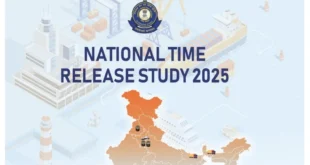Cooperation among governments and tolerance among citizens will help us find a solution to the refugee crisis
A large number of people in the world today are stateless and are thus deprived of the rights that the majority enjoy. This problem is particularly significant in the Indian context now — not only because of the Rohingya crisis that is unfolding in the subcontinent, but also because of the updating of the National Register of Citizens (NRC). It is worrying that over 40 lakh people in Assam have been left out of the draft NRC, and that many of them have reportedly not been given reasons for their omission. Even within families, some members have been recognised as citizens, while others have to refile their claim for citizenship. If rejected again, these people stand the risk of losing citizenship and even being deported. But where will they go?
The NRC situation sounds eerily similar to how the Rohingya Muslims were ousted from Myanmar. And the attitude of various governments towards stateless people is similar. Myanmar State Counsellor Aung San Suu Kyi has drawn a lot of criticism from the international community for the treatment of the Rohingya, so much so that she has been stripped of many prestigious international titles. India has argued that taking in the Rohingya would be a national security concern as well as a drain on its resources. These concerns trump the basic concern for the lives of these people.
No international cooperation
There seems to be no political consensus or international cooperation on refugee rehabilitation. This is a grave concern, because the fate of these people does not hang as an albatross around any country’s neck. The inability to take a stand will only worsen the situation, as has been the case in Palestine, where over a million people have been living in camps as refugees since the 1940s. Their descendants are also treated as refugees. These refugees have been without an identity for seven decades now, which shows how prolonged a migrant’s ordeal can be when no nation is willing to treat the problem as its own.
Receiving little media attention is the fact that Africa is taking in a disproportionate number of refugees — currently 80% of the world’s refugee population, according to the UN. Developing countries have fewer resources, which is why it is heartening that countries like Ethiopia choose to value the lives of refugees over nationality, ethnicity and polity considerations. The importance of protecting borders and containing threats to national security cannot be undermined. But the key factors that have led to the refugee crisis in some places seem to be the need to appease voters, and growing jingoism. The trends indicate that this is only set to rise, if it is not checked. Hegemonic countries cannot adopt isolationism in dealing with a situation that involves such a significant number of the world’s inhabitants. Cooperation among governments and tolerance among citizens will help us find a solution to this conflict.
Damini Chopra, an actor starring in Telugu and Hindi films, is also working with NGOs that focus on child immunisation and independence of women
Check Also
Biofuels and the Food vs. Feed Dilemma
GS3 – Environment Context India’s growing emphasis on biofuels is raising alarm over the diversion …
 Chinmaya IAS Academy – Current Affairs Chinmaya IAS Academy – Current Affairs
Chinmaya IAS Academy – Current Affairs Chinmaya IAS Academy – Current Affairs


